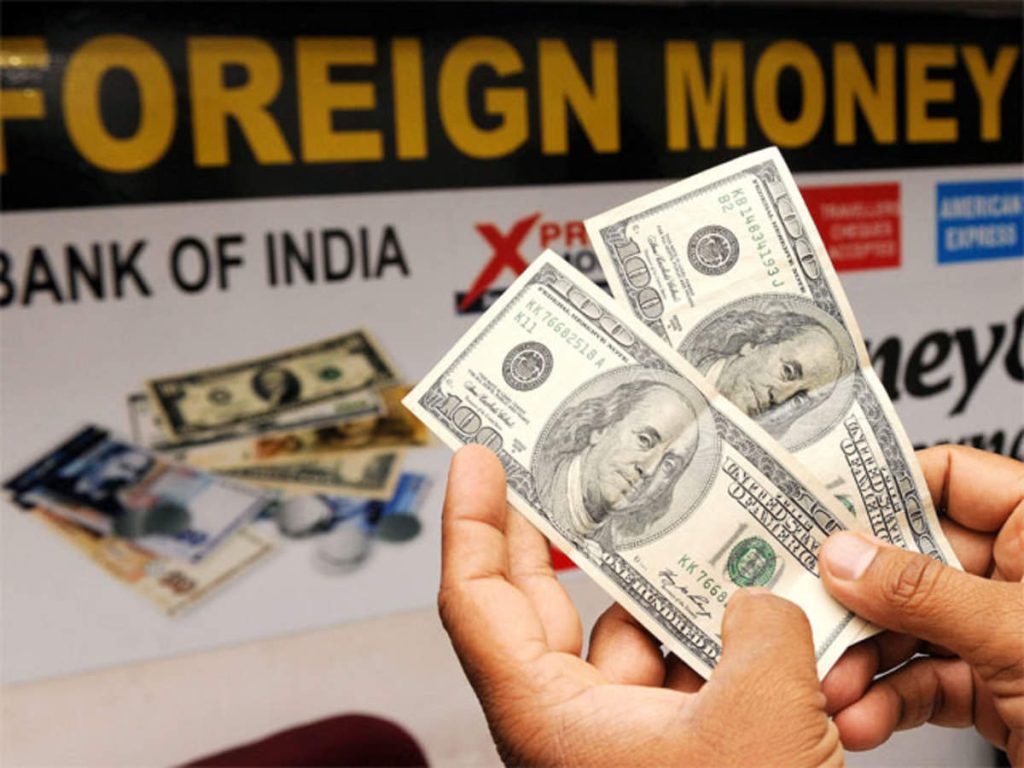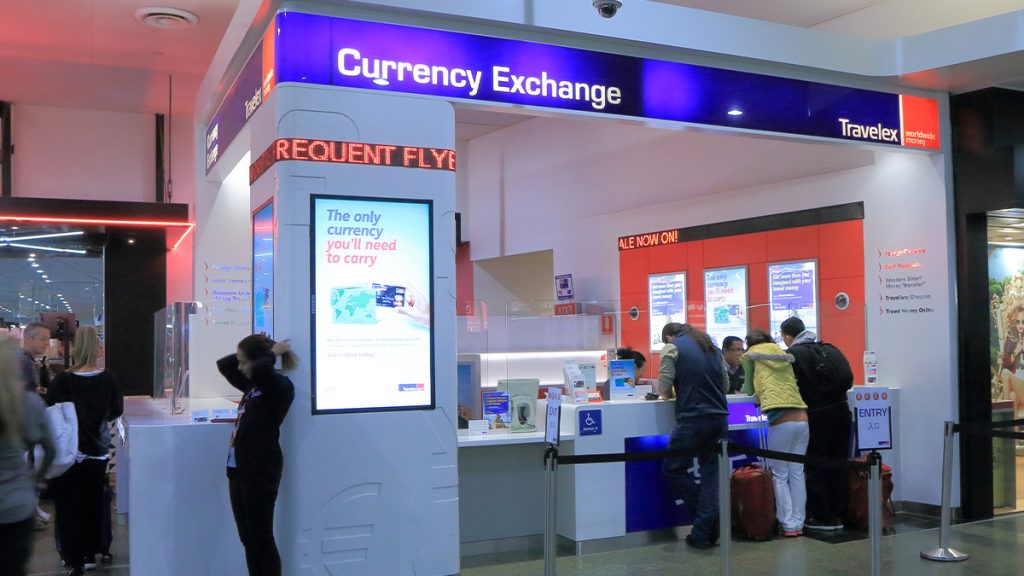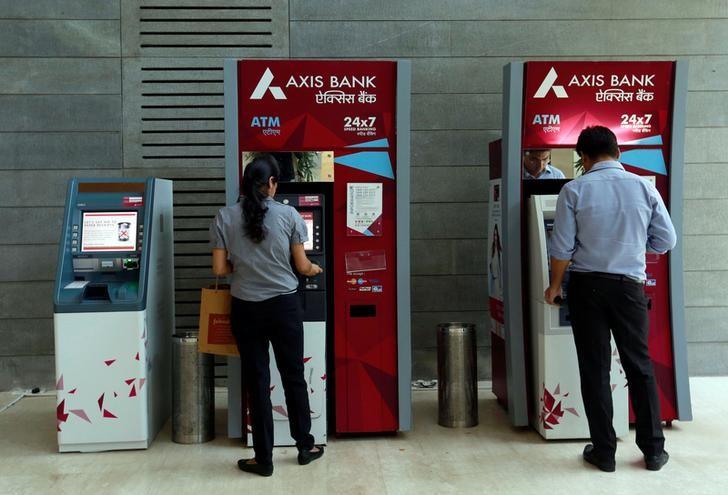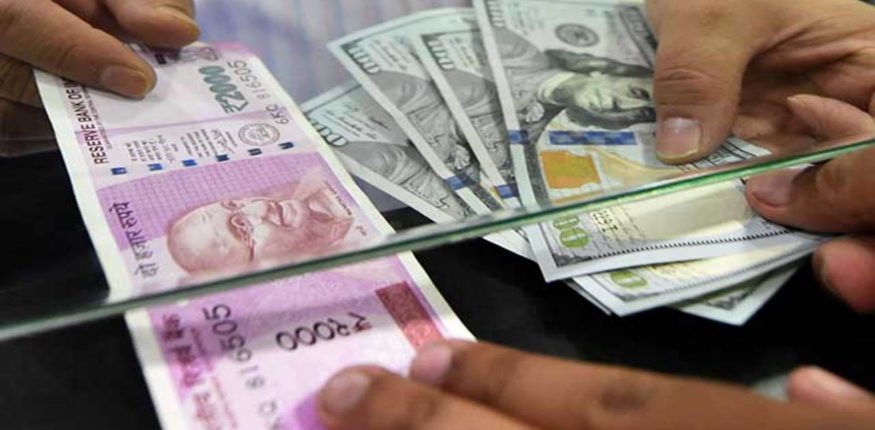Gone are the days when getting your foreign currency exchange in India was quite a complicated and tedious task. Not to mention the scams!
Nowadays, there are numerous ways in which you can get your foreign currency exchanged in India, which include:
- Currency Exchange at Airport itself when you land
- Exchange currency in India through ATMs using credit/debit cards
- Exchange money in India at selected local banks
- Exchange USD to INR through RBI approved money exchangers (probably the most convenient and accessible option)
- Direct money transfers
- Currency exchange through online forex platforms (best value for money)
USD to INR Currency Exchange Rate
Current USD to INR Rate – 74.90
| Stats | Last 30 Days | Last 90 Days |
| High | 75.064 | 75.493 |
| Low | 73.919 | 72.979 |
| Average | 74.496 | 74.364 |
| Volatility | 0.23% | 0.21% |
Suppose you are planning a trip to India. It would help if you considered multiple options depending on how much and where you’ll spend your money before deciding where to exchange your foreign currency in India.
However, with this post, we aim to cut down your research time and effort further to get the best value for your currency and get your money exchanged from US dollars to INR with ease and convenience.

Let’s dive right into it.
How to Get Rupees BEFORE your Trip to India
Reserve Bank of India (RBI) guidelines show that you cannot carry more than INR 10,000 in cash from outside India. The rules are put in place to ensure that tax evasion does not happen and also due to black money matters.
Suppose someone told you that you couldn’t take Indian rupees outside India. However, rest assured, you can do so in the United States and even the United Kingdom. Just call your local bank to ensure that you can carry the right rupees from your country before traveling to India.
Also Read: Best Time to visit India
Exchange Foreign Currency in India at the Airport

Although it may sound tempting and one of the most hassle-free ways to get your foreign currency exchanged for Indian rupees upon arrival in India at the airport itself, know that it doesn’t offer value for your money. But, on the other hand, the exchange rates at airports are pretty higher than what you get otherwise.
We’d strongly recommend that you don’t get your currency exchanged at the airports unless it’s an emergency case.
Here is the list of major airports and where you can get your USD exchanged to INR
| Airport | Foreign Exchange |
| Indira Gandhi International Airport, New Delhi | T3 International Arrivals and Departures |
| Chhatrapati Shivaji International Airport Mumbai | Terminal 2, Arrivals |
| Kempegowda International Airport, Bangalore | Ground & 1st floor at the International Terminal |
| Cochin (Kochi) International Airport | International Terminal |
Foreign Currency Exchange in India through Banks
Nowadays, there are various banks in India offering foreign currency exchange.
They also offer good value for money, if not the best. But they also happen to be the most trustworthy place to get your forex exchanged in India.
Government sector banks like State Bank of India and Punjab National Bank and private players like HDFC and AXIS Bank offer currency exchange.
However, there are a few limitations in exchanging your money from banks in India. For example, there are working hour issues with banks. You may also find queues and crowds in the banks. And then, there are several governments and state holidays on which banks stay closed in India.
Do check beforehand before planning to visit a bank in India for foreign currency exchange.
Which banks offer foreign currency exchange in India?
| Bank | Currencies Available |
| HDFC Bank | 20 currencies, including THB, USD, EUR, KRW, SAR, and SGD |
| State Bank of India | USD, GBP, and EUR |
| Axis Bank | 14 currencies, including ZAR, SGD, JPY NZD |
| ICICI Bank | 14 currencies, including AED, SGD, HKD, QAR, SAR, THB, and KWD |
RBI Approved Money Exchangers in India
One of the best ways to get your forex converted from USD to INR is by choosing one of the many RBI-approved foreign currency exchangers in India.
The best part about these approved money exchangers in India is getting excellent value for your money. They also tend to work on holidays and are also quite accessible, especially in the places where there are decent footfalls of foreigners traveling to India.
The benefits of having your foreign currency exchanged through money exchangers are many. That include:
- Convenient location
- Competitive exchange rate for foreign currency (USD to INR)
- More operational hours than banks (they even operate on weekends as well)
Exchange Currency using ATM Withdrawals in India

If you are carrying an international debit card or the credit card of your bank, then you could easily withdraw money from ATMs in India.
Again, ATMs are quite handy places to withdraw money in India. Again, there’s broad reach, and ATMs could be found even in the remotest areas in India.
However, the exchange rate and service charges are often a little heavier when you withdraw money in India through ATMs. Plus, there’s a daily limit on how much money you can withdraw in a day through ATMs.
The maximum amount withdrawable per day from one card is INR 10,000.
Direct Money Transfers
One of the most convenient ways to get your money exchanged into Indian rupees before traveling to India is through direct money transfers. You can use mobile banking or net banking services to transfer money from one account into another with ease and without physically visiting your branch.
Online Forex Platforms
The winner of foreign currency exchange in India is the newcomers – online forex platforms.
Online forex platforms have become the most popular option for money exchange in India these days because of the ease with which you can get your money transferred into Indian rupees.
The second benefit is the forex rate you can get when using it.
You could get the most competitive exchange rates and the most value for your money with online currency platforms.
Also, you can change your money into rupees with ease using your mobile phone from anywhere without physically visiting a store.
Documents Required for Money Exchange in India
If you are buying or selling foreign currency in India through your bank or a chosen money changer, you’d be required to provide KYC (Know your customer) documents.
This complied with Reserve Bank of India regulations, and all banks and authorized exchange houses must adhere to this rule for forex in India.
Mentioned below are the documents that you should keep handy when doing currency exchange:
Buying Forex
For buying foreign currency in India, one of the following documents is required:
- Indian Passport
- Copies of utility bills, international driver’s licenses, etc., are needed for overseas residents.
- Confirmed Air Ticket showing travel within 60 days
- PAN Card
- Valid Visa (Mandatory for some countries)
Selling Forex
You need the following documents for selling foreign currency in India:
- Indian Passport (Mandatory for transactions above Rs.25,000)
- Copy of your Driving License
- Voters ID
- Aadhar Card
- PAN Card (If required)
Please Note: Any 1 of the above documents is enough
How much is each USD bill worth, and how much should I take out at the ATM?
| INR Value | In US Dollars |
| INR 10 | 13 Cents |
| INR 20 | 26 Cents |
| INR 50 | 65 cents |
| INR 100 | $1.31 |
| INR 200 | $2.64 |
| INR 500 | $6.59 |
| INR 2000 | $26.35 |
Things to Consider for Foreign Currency Exchange in India
- Check exchange rates online before having your forex converted into rupees. The rates may vary daily. Research is an important part of getting the best value for your foreign currency.
- Avoid money exchanges at the airport as they have the steepest forex rate
- Consider using a foreign currency card, debit card, or credit card to pay at the point of purchase if the option is available. Digital payments have become part and parcel of daily life in India these days.
- Remember that there are various fake currency dealers and scams in India. Read about how to tell a fake currency from real ones below or by visiting RBI’s website.
How to Avoid Foreign Exchange Fees
- Credit cards with no foreign transaction fees
- International travel cards
- Local banks (not free but charge much less fee)
- Avoid cash advances (don’t use your credit cards as debits card)
- Use local currency for payments


Leave a Comment